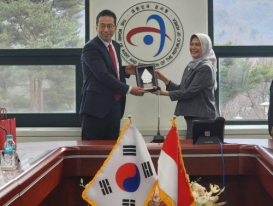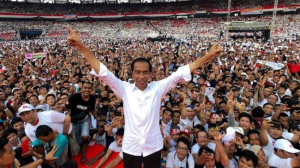Indonesia told to improve business environment to achieve high-income status
Indonesia must enhance its business environment to accelerate economic growth and escape the middle-income trap, according to Norman Loaiza, Director of the Global Indicators Group at the World Bank Group. Speaking at the launch of the Business Ready (Be Ready) Report, Loaiza highlighted key areas where Indonesia needs improvement to attract investments and foster a dynamic private sector.
Loaiza noted that Indonesia's GDP per capita growth rate of 3.4% over the last decade falls short of the 5% annual growth required to reach high-income status. The Indonesian government has set ambitious targets to achieve 8% GDP growth by 2029, but this requires significant structural reforms.
Indonesia attracted $114.3 billion in investments in 2024, surpassing its targets. “ However, to sustain higher growth rates, the country must improve ease of doing business, efficiency in trade, and regulatory frameworks,”saod Loiza at World Bank’s 2025 Be Ready Report in Jakarta on Monday ,February 10,2025.
Business Ready Report: Indonesia’s Performance
The Business Ready Report, replacing the previous Doing Business index, assesses business environments across 50 economies, with Indonesia scoring 60% in business readiness. Loaiza stressed that while Indonesia performs consistently across various business indicators, improvements are necessary to compete with regional peers like Vietnam and Singapore.
Key findings include:
• Business Entry: It takes 65 days to register a foreign company in Indonesia, compared to 3 days in leading economies.
• Trade Efficiency: Import and export compliance costs 35%-66% of goods’ value, compared to 2% in the most efficient markets.
• Taxation: Less than 40% of Indonesian firms file taxes electronically, whereas top-performing economies achieve 100% e-filing.
• Workforce Training: Only 8% of firms provide formal training to employees, far below the 66% standard in high-performing nations.
• Infrastructure: Planned power outages are not communicated to businesses, reducing operational reliability.
Competitiveness and Regional Comparison
Indonesia faces stagnation in economic convergence with high-income economies, particularly compared to Vietnam, which has significantly improved its GDP per capita relative to Singapore.
“ Despite growth and investment achievements, bureaucratic inefficiencies, high business costs, and limited digital transformation hinder progress. The World Bank urged Indonesia to implement reforms in business regulation, digital services, and trade efficiency to unlock economic potential,” he added.
The Path Forward
By 2026, the Be Ready Report will expand to cover 180 economies, offering comprehensive insights into Indonesia’s standing in the global market. Loaiza emphasized that Indonesia must act decisively to ensure sustainable economic growth, attract investors, and foster a vibrant private sector.
“Indonesia has great potential, but achieving high-income status requires significant improvements across all business sectors,” Loaiza concluded.
Tag
Already have an account? Sign In
-
Start reading
Freemium
-
Monthly Subscription
30% OFF$26.03
$37.19/MonthCancel anytime
This offer is open to all new subscribers!
Subscribe now -
Yearly Subscription
33% OFF$228.13
$340.5/YearCancel anytime
This offer is open to all new subscribers!
Subscribe now






